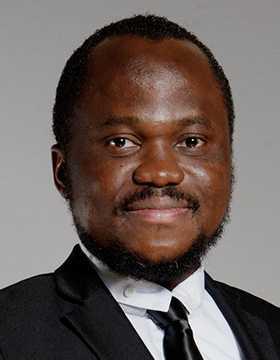
Moshood Olawale FADEYI
Profile
Biography
“Education is a cyclic process of generating or acquiring information and processing, i.e., learning, that information to generate experience and gain direction on how to apply this experience to solve problems. Experience, also referred to as processed information, encompasses knowledge, understanding, and skills. The tool for learning is thinking, that is, cognitive ability, which depends on the questions generated from the mental model created.” – Dr. Moshood Olawale Fadeyi.”
Dr. Moshood Olawale Fadeyi is an Associate Professor at the Singapore Institute of Technology, specialising in cognitive governance and value-oriented diagnostic reasoning and problem solving in indoor air quality and sustainable building engineering, using a research-as-practice approach. He is an architect, a Chartered Engineer (UK), and a Chartered Construction Manager (UK), with over 200 publications spanning peer-reviewed research and peer-level public scholarship. He is a pioneering global scholar in the development of communication solutions, as cognitive and emotional tools, through research-as-practice, advancing engineering education practice, and strengthening human capability for value-oriented problem-solving. Through this work, he contributes to SIT’s global leadership in applied research that enhances cognitive ability and judgement in engineering practice.
In his research-as-practice, he systematically identifies real-world problems in IAQ and sustainable building engineering that persist due to absent or inadequate mental models, thereby creating cognitive barriers to value-oriented problem-solving. He develops communication solutions, realised as fictional case stories and published through the Indoor Air Cartoon Journal, that function as cognitive and emotional tools to break these barriers and strengthen the cognitive abilities required for sound engineering judgement and action across education and practice.
His research delivers sustained institution-level value to SIT and aligns with its mission as an applied university for industry. While SIT is recognised for strong research-for-practice, his work complements this strength by advancing research-as-practice in engineering education practice. Focusing on cognitive and decision-making improvement, his research also generates durable intellectual assets for SIT via the Indoor Air Cartoon Journal, a Google Scholar–indexed living book series institutionalised through SIT Library curation and used in SIT UG, CET, and PG teaching. This strengthens SIT’s academic identity, global visibility, upstream applied research readiness, industry relevance, and societal value in terms of cognition and judgement.
He holds degrees in architecture (BSc, M.Arch), building science (MSc), and engineering (PhD) from Obafemi Awolowo University (Nigeria), the National University of Singapore, and the Technical University of Denmark. He is a member of CIBSE, CIOB, and ASHRAE, and a former National Taekwondo Champion in Singapore, reflecting his commitment to excellence across disciplines.
SIT Appointments
- Present
Education
- PhD (Indoor Environment and Energy)National University of Singapore and Technical University of Denmark (Joint Degree) ,
- MSc (Building Science)National University of Singapore , Singapore
- M.Arch (Architecture)Obafemi Awolowo University , Nigeria
- BSc (Architecture)Obafemi Awolowo University , Nigeria
Achievements
- A Global Leader in Applied Research in Engineering Education Practice for IAQ and Sustainable Building Engineering
Professional Certification
- Qualified ArchitectNigeria
- Chartered Engineer (CEng), Building ServicesEngineering Council, UK
- Chartered Construction ManagerChartered Institute of Building, UK
Professional Memberships
- Member, Chartered Institution of Building Services Engineers (MCIBSE), UK
- Member, Chartered Institute of Building (MCIOB), UK
- Member, American Society of Heating, Refrigerating and Air-conditioning Engineers, USA (MASHRAE)
Research
Research Interests
- Mental modelling in IAQ and sustainable building engineering practice
- Cognitive governance in IAQ and sustainable building engineering practice
- Problem diagnosis and risk assessment in IAQ and sustainable building engineering practice
- Value-oriented problem solving in IAQ and sustainable building engineering practice